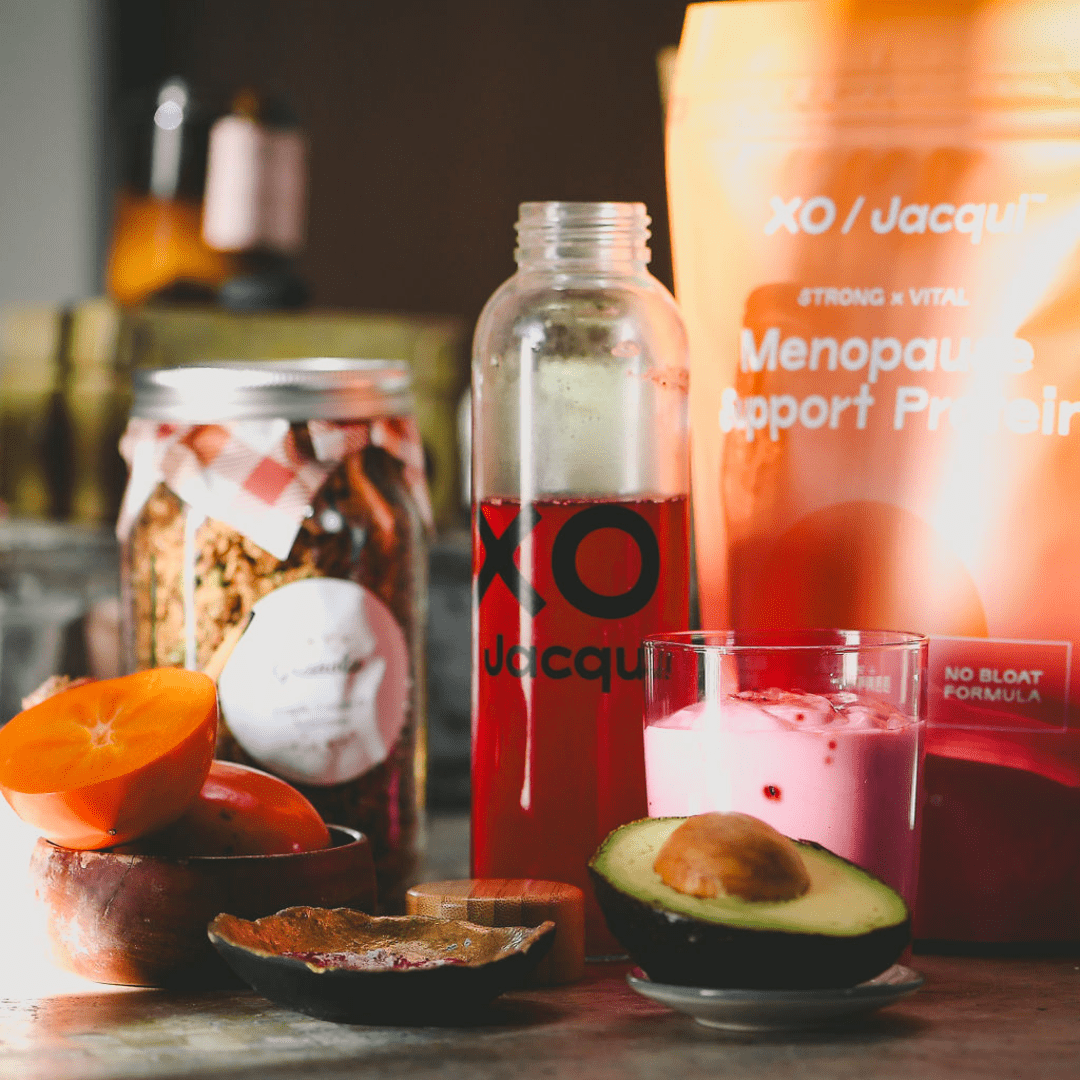Smart Meal Management That Actually Works
Maintaining a healthy weight during menopause doesn't have to feel like an uphill battle. With hormonal changes affecting metabolism, appetite, and energy levels, many women find that their usual eating patterns no longer serve them. The good news? Simple adjustments to your meal timing and protein intake can make a significant difference in how you feel and maintain a healthy weight.
Why Menopause Changes Everything About Weight Management
During menopause, declining estrogen levels can slow metabolism by up to 5% and shift fat storage to the midsection (don't I know it!). Your body also becomes less efficient at building and maintaining muscle mass, making protein intake more crucial than ever. Understanding these changes is the first step toward developing a sustainable approach to healthy weight maintenance.
1. Start Your Day with Protein-Powered Nutrition
Beginning your morning with a high-quality protein shake sets the foundation for stable blood sugar and sustained energy throughout the day. Unlike traditional breakfast foods that can cause energy crashes, a well-formulated protein shake provides essential amino acids that support muscle maintenance during menopause.
XO Jacqui protein shakes are specifically designed to deliver complete nutrition in a convenient format. Whether you blend it with berries and spinach or keep it simple with almond milk, starting with 20-25 grams of protein helps regulate hunger hormones and supports healthy metabolism.
Pro tip: Blend your morning shake with ice and a tablespoon of almond butter for extra staying power.
2. Embrace Strategic Meal Timing (Without the Fasting Label)
Many women find success with a natural eating rhythm that includes a mid-morning protein shake, lunch around 11 AM to 12 PM, and dinner by 6 PM, finishing eating by 8 PM. This pattern naturally gives your digestive system a 12-14 hour rest period overnight, which can support better sleep and hormone regulation.
This isn't about restriction—it's about working with your body's natural rhythms. When you fuel your body with protein-rich meals during your most active hours and allow for proper digestion before sleep, you're supporting both weight management and overall wellness.
3. Make Every Meal Protein-Centric
During menopause, aim for 25-30 grams of protein per meal (not more than 30—I know it's a trend, but this taxes your digestive system and leads to bloating and other digestive issues) to maintain muscle mass and support satiety. Focus on lean, high-quality proteins that provide essential amino acids:
4. Transform Your Favorite Foods into Protein Powerhouses
One of the biggest challenges in maintaining healthy eating habits is feeling deprived of favorite foods. This is where creativity in the kitchen becomes your best friend. XO Jacqui's recipe section offers incredible solutions for satisfying cravings while supporting your health goals.
Protein-packed alternatives that don't compromise on taste:
Breakfast Bowls: Transform traditional oatmeal or smoothie bowls by incorporating protein powder. Create satisfying morning meals that taste indulgent while providing the nutrition your body needs during menopause.
Healthy Baked Goods: Yes, you can enjoy muffins, cookies, and bread while maintaining a healthy weight! Protein-enhanced baked goods help stabilize blood sugar and provide sustained energy without the typical sugar crash.
Guilt-Free Ice Cream: Satisfy your sweet tooth with protein ice cream recipes that deliver the creamy, indulgent experience you crave while supporting your nutritional goals.
These recipes prove that healthy eating during menopause doesn't mean giving up the foods you love—it means making them work better for your body.
5. Listen to Your Body's Hunger and Fullness Cues
Menopause can disrupt hunger and satiety signals, making it harder to know when and how much to eat. By focusing on protein at each meal and maintaining consistent meal timing, you can help reset these natural cues.
Pay attention to how different foods make you feel. Protein-rich meals should leave you satisfied for 3-4 hours without energy crashes or cravings. If you find yourself constantly hungry or experiencing energy dips, it may be time to adjust your protein intake or meal timing.
Creating Your Sustainable Meal Management System
The key to successful weight management during menopause isn't perfection—it's consistency with a system that fits your lifestyle. Here's a simple framework to get started:
Morning (7-8 AM): Start with your XO Jacqui protein shake. Midday (11 AM-12 PM): Enjoy a protein-centric lunch with vegetables. Evening (5-6 PM): Have your final meal with lean protein and healthy fats. After 8 PM: Allow your digestive system to rest
This natural rhythm supports hormone balance, promotes better sleep, and helps maintain steady energy levels throughout the day.
Remember, maintaining a healthy weight during menopause isn't about restriction—it's about giving your body the nutrition it needs when it needs it most. With strategic meal timing, protein-focused nutrition, and creative recipes that satisfy your cravings, you can feel confident and energized throughout this important life transition.
Ready to transform your relationship with food during menopause? Browse our complete recipe collection and discover how delicious healthy eating can be.
